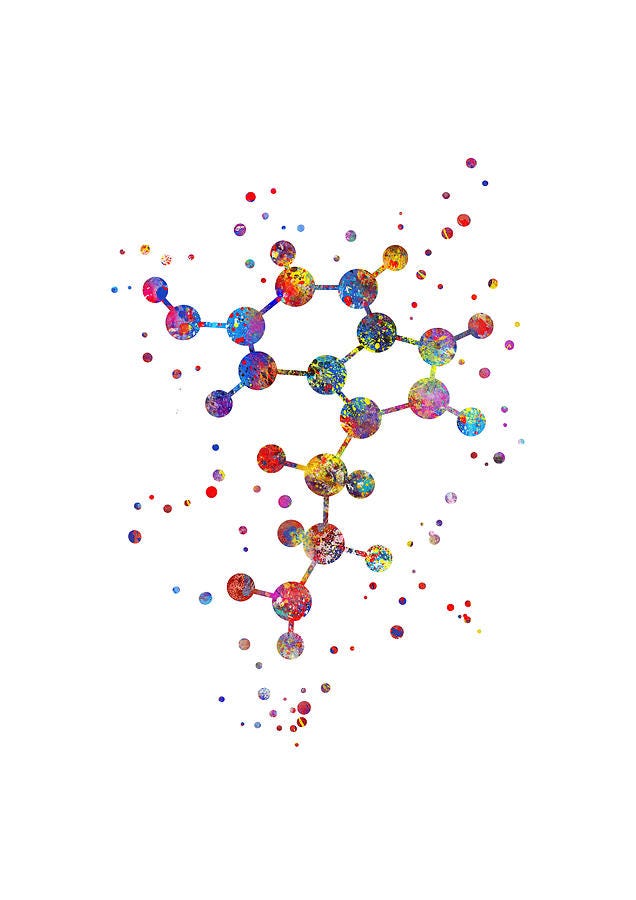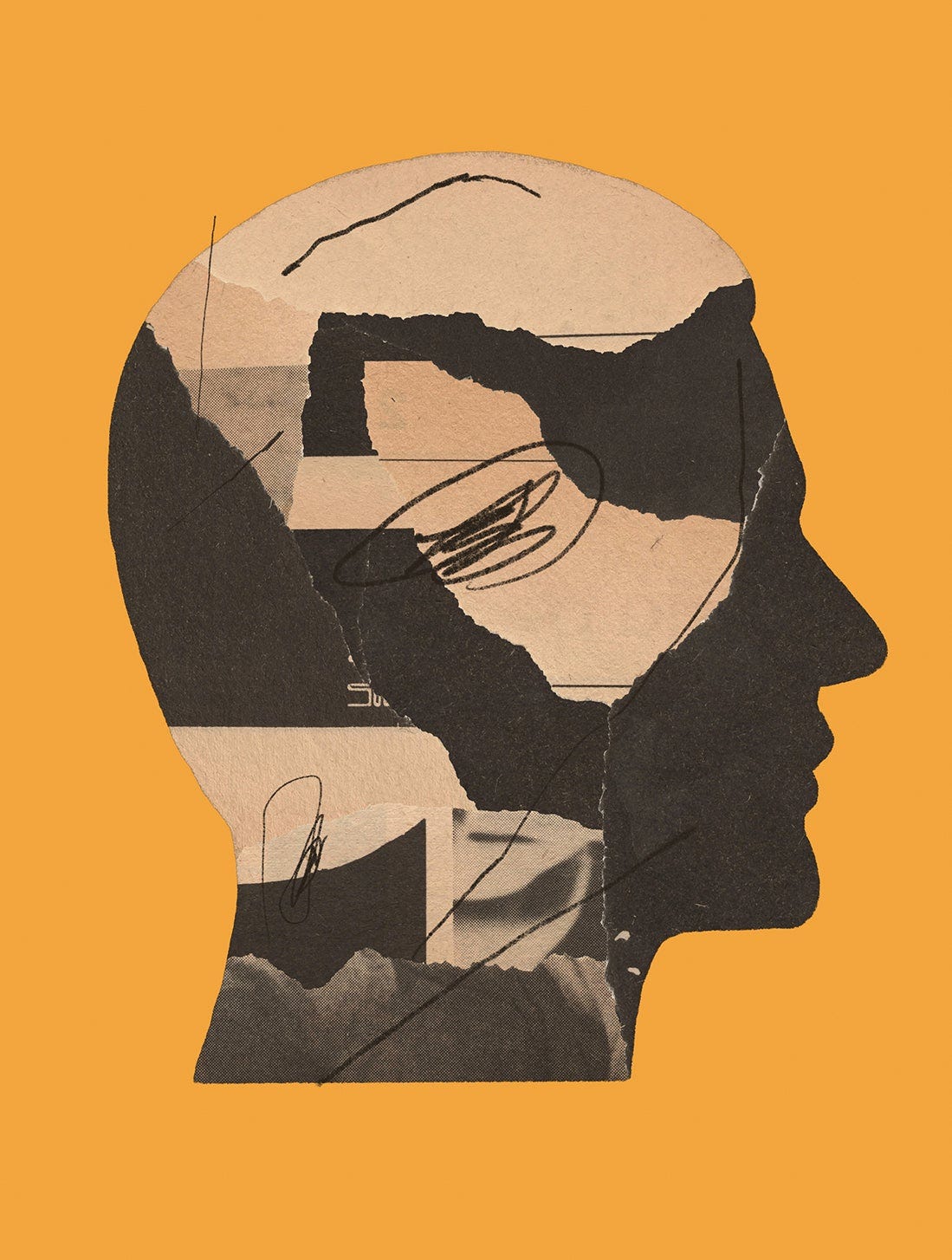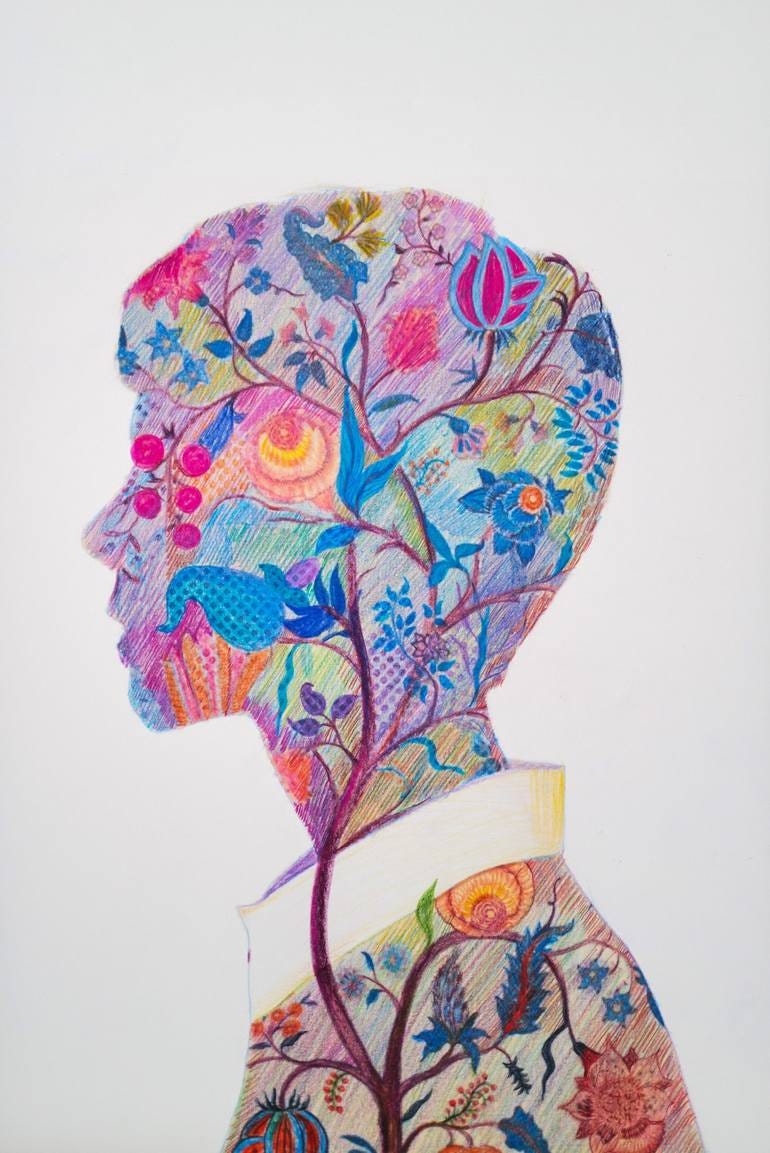Begging the "Serotonin Hypothesis" question: Critical Psychiatry is punching below the belt in antidepressant news.
Tryptophan Thursday
Tryptophan Thursday
Hi there, welcome to Engineering Our Social Vehicles. If you’re new to the newsletter, today is Tryptophan Thursday. On Thursdays around these parts we like to talk about everybody’s favorite amino acid. Today we’re going to look at one of its starring roles: serotonin.
The “Serotonin Hypothesis” strawman
There’s a new meta-study making rounds on the internet claiming to have disproved the “Serotonin Hypothesis.” 1 What I and many others online have been rather peeved about is the notion that there ever was a “serotonin hypothesis.”
Way back in 2015, Scott Alexander had a fight with Mad In America about this specific issue. I.e. “is there a even a serotonin hypothesis?” The TL;DR (which I’m inclined to agree with) is: researchers have never proposed “chemical imbalance” to mean specifically serotonin. Practitioners, media, and pharmaceutical companies have played fast and loose with a lie-to-children, using applied ignorance to explain the potential benefits of antidepressants to the public without getting into the minutia of codependent chemical pathways in the brain.
If you’re curious about a more in-depth look at the intersecting pathways that contribute to depressive symptoms, here’s a lecture from my favorite, Sapolsky:
Sapolsky says it pretty well that from what we know about depression, there seems to be something going on in the interaction of adrenaline, dopamine, and serotonin- each contributing their own ingredient to the special sauce that is depression. This is a much clearer picture of the supposed “chemical imbalance hypothesis.”
The reason neuropsych nerds get mad whenever anyone purports to refute the “serotonin hypothesis” is because there is no serotonin hypothesis, there’s the hypothesis that serotonin plays a role in a larger complex of disordered neurotransmitters. When you see the words “serotonin hypothesis” is is a giant neon sign shouting “STRAWMAN, STRAWMAN, STRAWMAN.” No one on the research side of things is making an argument for a solely serotonergic cause of depression, nor are they arguing that serotonin pathways are the only ones in need of balancing.
By attacking an argument that no one is making, these criticisms set up a foothold, a beachhead from which to launch the real assault: that on the biological nature of depression itself. Articles often use "serotonin hypothesis is wrong” and “chemical imbalance hypothesis is wrong" interchangeably. Which is whack, because the chemical imbalance hypothesis has never been the serotonin hypothesis.
Critical/Anti Psychiatry
Let’s talk about the first and last authors of the most recent log on the fire: Joanna Moncrieff and Mark Horowitz. Here’s the disclosure statement from the piece linked at the top of the article:
Joanna Moncrieff is a co-investigator on a National Institute of Health Research funded study exploring methods of antidepressant discontinuation. She is co-chair person of the Critical Psychiatry Network, an informal and unfunded group of psychiatrists and an unpaid board member of the voluntary group, the Council for Evidence-based Psychiatry.
Mark Horowitz is co-founder of a company aiming to help people safely stop unnecessary antidepressants in Canada. He is an (unpaid) associate of the International Institute of Psychiatric Drug Withdrawal (IIPDW) and a member of the Critical Psychiatry Network.
Joanna co-chairs the Critical Psychiatry Network; a group of primarily UK-based psychiatrists who have campaigned to reduce the role of pharmaceuticals and medical models in psychiatric treatment since 1999. It’s difficult to summarize their position succinctly, but the general bent is that they want brain pathology to be dethroned as the functional basis for mental illness and legislation concerning it. Despite their frequent assertions of placebos being equally efficacious as psychiatric medications the group has yet to produce a solid body of research demonstrating their claims, and what little positive documentation there is shows many potential confounds and problems in methodology:
One comparison study showed 34% of patients of a 'medical model' team were still being treated after two years, compared with only 9% of patients of a team using a 'non-diagnostic' approach (less medication, little diagnosis, individual treatment plans tailored to the person's unique needs). However the study comments that cases may have left the system in the 'non-diagnostic' approach, not because treatment had worked, but because (1) multi-agency involvement meant long-term work may have been continued by a different agency, (2) the starting question of 'Do we think our service can make a positive difference to this young person's life?' rather than 'What is wrong with this young person?' may have led to treatment not being continued, and (3) the attitude of viewing a case as problematic when no improvement has occurred after five sessions may have led to treatment not being continued (rather than the case 'drifting' on in the system)
Though not explicitly aligned with anti-psychiatry2, CPN shares many of the same goals as its dissident cousin. Namely this includes an end to involuntary psychiatric detention and a repeal of harmful psychiatric labels like “schizophrenic.” Both movements have often run afoul of their more traditional contemporaries by disregarding standard research practice when publishing their findings. If anti-psychiatry is the extremist group, CPN is the milquetoast recruitment league.
As for Horowitz, he has a self admitted history of antidepressant withdrawal, which has since become the focus of his research, personal, and professional brands. I see that he’s trying to do good, but question if it’s reasoned to help the most people, or to help the most people like him. The fact that he’s co-founded a company that stands to directly benefit from this publication doesn’t inspire confidence in his position as last author either.
Begging the question
Begging the question is assuming the truth of a position without establishing it. Strawmanning is a form of begging the question because it assumes the existence of a position that isn't held. The authors of the paper presuppose the conclusion that "the serotonin hypothesis" is a widely held position in the field, which it isn't.
I think it’s important to note that this most recent study was done by researchers who explicitly set out to find evidence that there isn’t a reason to prescribe antidepressants. This is not a finding that was a “woah, well would you look at that, crazy!” This is a finding that supports very strongly held, career-spanning opinions that seek to make massive changes to both the practice and politics of psychiatry.
Let’s talk about the article in question, which claims “certain leading psychiatrists” have been pushing the claim of chemical imbalance while linking to a study specifically calling out misrepresentations by pharmaceutical advertisements and a brief blog entry by Ronald Pies, who is agreeing with them. Where are the leading psychiatrists? They point to the APA website and perform the strawman sleight of hand of confusing “chemical imbalance” for “serotonin hypothesis.”
One section I took special umbrage with is this (bolding is my own):
We also looked at research that explored whether depression can be induced in volunteers by artificially lowering levels of serotonin. Two systematic reviews from 2006 and 2007 and a sample of the ten most recent studies (at the time the current research was conducted) found that lowering serotonin did not produce depression in hundreds of healthy volunteers.
What this section fails to mention is that in both studies reduced serotonin did show significant effect in production of depressive symptoms in individuals who have depression or are predisposed. From the 2007 review:
In conclusion, monoamine depletion studies demonstrate decreased mood in subjects with a family history of MDD and in drug-free patients with MDD in remission, but do not decrease mood in healthy humans.
We know depression is a genetic disorder, and glossing over the significant effects of reducing serotonin in people who have it amounts to journalistic malpractice. It’s like saying “we took all of the doors off of schools in texas and school shooting rates didn’t go up;” no one educated on the issue thought doors were the sole controlling factor, and anyone who did was an idiot or being purposely obtuse. Of course you can’t induce depression in people who aren’t predisposed by simply lowering their serotonin levels, and acting like that finding is a revelation is again arguing against a position that no one has taken.
Very large studies involving tens of thousands of patients looked at gene variation, including the gene that has the instructions for making the serotonin transporter. They found no difference in the frequency of varieties of this gene between people with depression and healthy controls.
The article goes on to do the same by targeting only studies featuring one specific potential gene for serotonin imbalance but ignoring the mountain of evidence of depression as a familial disorder, which includes studies that have controlled-out nurture effects via twin studies.
In the last three paragraphs of the article, the mask comes off. Moncrieff and Horowitz work their way into the argument that’s been coming all along: there’s no biological component for psychiatric conditions:
Although viewing depression as a biological disorder may seem like it would reduce stigma, in fact, research has shown the opposite, and also that people who believe their own depression is due to a chemical imbalance are more pessimistic about their chances of recovery.
It is important that people know that the idea that depression results from a “chemical imbalance” is hypothetical. And we do not understand what temporarily elevating serotonin or other biochemical changes produced by antidepressants do to the brain. We conclude that it is impossible to say that taking SSRI antidepressants is worthwhile, or even completely safe.
Again, our authors beg the question by assuming imagining opposition- where are the researchers arguing we should push a biological view of depression to make people feel better? We don’t pursue science because of optics, we pursue it to derive truth and actually treat a disease. This calls to mind a recent INSANE discovery of potential fraud in Alzheimer’s research:
“You can cheat to get a paper. You can cheat to get a degree. You can cheat to get a grant. You can’t cheat to cure a disease,” he says. “Biology doesn’t care.”
I want a diverse body of research. I want dissenting voices in the community. I want people to challenge commonly held belief. Is the cost of that obvious underhanded maneuvering for transparent political gain?
Concluding, conflicting emotions
I’m of two minds about this. On one hand, I think that pharmaceutical companies have been relying on shady business practice to push product without concern for customer wellbeing. I think that state action has previously gone overboard with prescriptive remedies on behalf of “medically derived” conclusions that were later upended (I’m looking at you, frontal lobotomies). I think that there is significant impact mindfulness and other non-medication approaches can have on treatment of psychiatric disorders.
On the other hand, I think arguing against biological basis for mental disorder gives unnecessary ammunition to the “it’s all in your head/you’re just lazy” crowd. Sapolsky (the video lecturer from the beginning) likes to talk about how modern biology has given us an understanding of epilepsy that has us treating epileptics with medication rather than burning them at the stake for demonic possession. Arguing against biological influence is a step backwards; even if it’s done to reduce the influence the pharmaceutical industry. That’s just throwing the baby out with the bathwater. I think that using research literature to argue against a hypothesis that was only ever present in advertisements and dumbed-down explanations of more complex ideas is misleading. I think that modern psychopharmacology is equivalent to changing a car’s oil by pouring a bottle over the engine block, and that shouting it down now might deny relief to future millions.
I have friends who have been attacked by people in the middle of psychotic episodes. I’ve lived with someone who had a schizoid break and had to be involuntarily hospitalized because they were threatening other members of the household. I watched their personality completely change overnight. I can’t believe that no biology was involved in those events, and I don’t think I could bring myself to support a policy that would remove the ability to restrain someone obviously on the brink of disaster before they harmed themselves or others. This article and the attached paper smack of virtue signalling from a historically politicized organization. CPN is trying to push science and politics simultaneously, and it will have the consequence of hurting real people.
Most importantly, and most frustratingly, is that these hit pieces all end with thoughtful chin stroking from an ivory tower. It would be so simple to point to the demonstrable effect of social inequality and societal stress on levels of depression. Cry havok! You’re progressive psychiatrists for god sakes, why not point the finger at the quickly eroding social support networks that no longer provide a sense of security, community, or wellbeing to the vulnerable communities they once protected? They are taking potshots at other academics who are earnestly trying to help those stricken. They aren’t engaging in necessary social criticism despite being avid criticizers of other mental health policy, and it leaves this reader with a bad taste in his mouth.
If you saw news break about these findings and also found yourself frustrated, please share this article and tag me on Twitter.
The article linked here is authored by two of the authors on the actual paper, so we don’t have to deal with any science journalism braying.
For a fun trip, look into the connections of the anti-psych movement with L Ron Hubbard and Scientology.








Thanks for the thoughtful posting, Mr. Logan.
Please see the paper by Dr. George Dawson and me, at this link:
https://www.researchgate.net/publication/361537710_An_%27urban_legend%27_remains_an_%27urban_legend%27
Also, for further reading, please see:
https://return.life/2022/03/17/the-myth-of-the-chemical-imbalance/
It is critically important not to confuse and conflate the hypothesized role of serotonin in depression with a bogus "chemical imbalance theory", or with the efficacy of antidepressant treatment per se.
Ronald W. Pies, MD
The only thing I disliked about this article is the paragraph which begins with “On the other hand, I think arguing against biological basis for mental disorder gives unnecessary ammunition” because, as you pointed it out yourself, science is about pursuing truth not optics. The arguments in this entire paragraph seem very akin to the argument that chemical imbalance theory should not be pursued because it makes patients feel worse.